Cloud Computing Patterns, Mechanisms > Reliability, Resiliency and Recovery Patterns > Non-Disruptive Service Relocation
Non-Disruptive Service Relocation (Erl, Naserpour)
How can cloud service activity be temporarily or permanently relocated without causing service interruption?

Problem
There are circumstances under which redirecting cloud service activity or relocating an entire cloud service implementation is required or preferable. However, diverting service activity or relocating a cloud service implementation can cause outage, thereby disrupting the availability of the cloud service.
Solution
A system can be established whereby cloud service redirection or relocation is carried out at runtime by temporarily creating a duplicate implementation before the original implementation is deactivated or removed.
Application
Virtualization technology is used by the system to enable the duplication and migration of the cloud service implementation across different locations in realtime.
Mechanisms
Cloud Storage Device, Cloud Usage Monitor, Container, Hypervisor, Live VM Migration, Pay-Per-Use Monitor, Resource Replication, SLA Management System, SLA Monitor, Virtual Infrastructure Manager, Virtual Server, Virtual Switch
Compound Patterns
Burst In, Burst Out to Private Cloud, Burst Out to Public Cloud, Cloud Authentication, Cloud Balancing, Elastic Environment, Infrastructure-as-a-Service (IaaS), Isolated Trust Boundary, Multitenant Environment, Platform-as-a-Service (PaaS), Private Cloud, Public Cloud, Resilient Environment, Resource Workload Management, Secure Burst Out to Private Cloud/Public Cloud, Software-as-a-Service (SaaS)
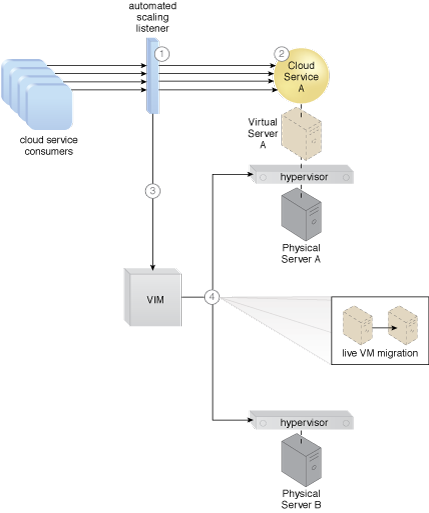
An example of a scaling-based application of the Non-Disruptive Service Relocation pattern (Part I).
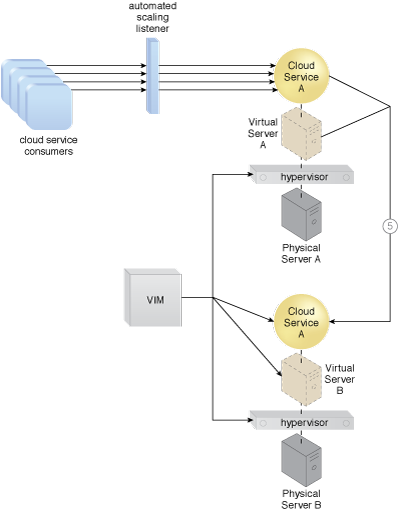
An example of a scaling-based application of the Non-Disruptive Service Relocation pattern (Part II).
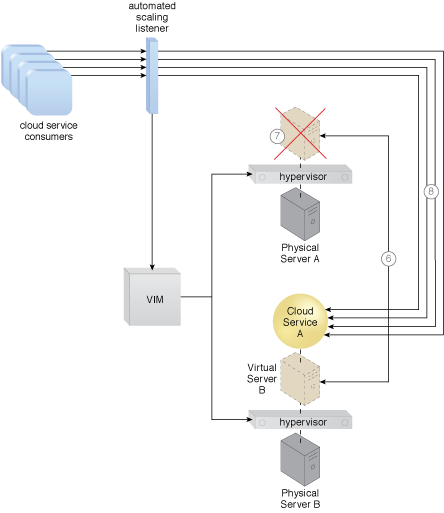
An example of a scaling-based application of the Non-Disruptive Service Relocation pattern (Part III).
NIST Reference Architecture Mapping
This pattern relates to the highlighted parts of the NIST reference architecture, as follows:
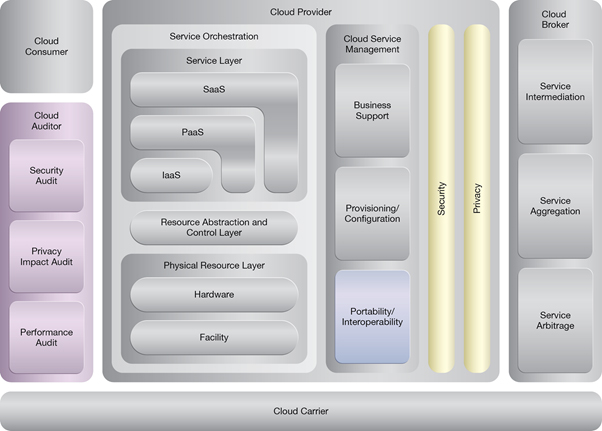
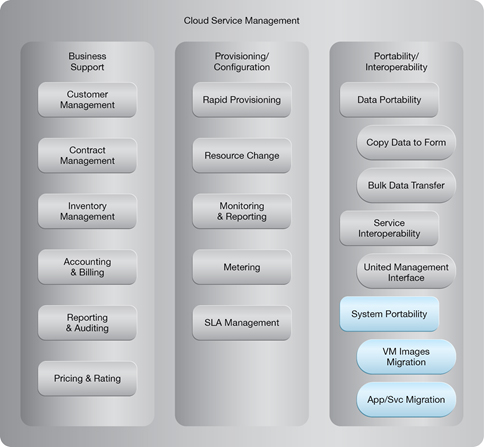
This pattern is covered in CCP Module 4: Fundamental Cloud Architecture.
For more information regarding the Cloud Certified Professional (CCP) curriculum, visit www.arcitura.com/ccp.
This pattern is covered in CCP Module 17: Advanced Cloud Virtualization.
For more information regarding the Cloud Certified Professional (CCP) curriculum, visit www.arcitura.com/ccp.
This cloud computing mechanism is covered in:
Cloud Computing: Concepts, Technology & Architecture by Thomas Erl, Zaigham Mahmood,
Ricardo Puttini
(ISBN: 9780133387520, Hardcover, 260+ Illustrations, 528 pages)
For more information about this book, visit www.arcitura.com/books.


